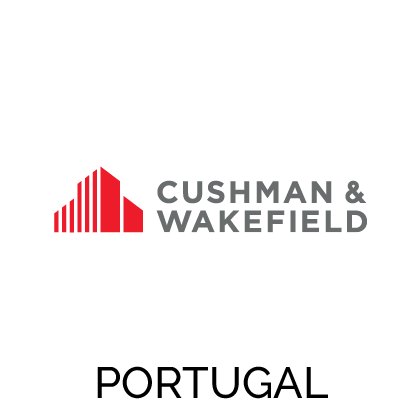A commercial real estate investment pipeline of around 2,700 million euros is currently under negotiation, a voluminous pipeline that may even be the largest ever, but a price discovery phase poses some additional uncertainties regarding the closing date of these deals.
The information was given by Paulo Sarmento, Head of Transactional Services at Cushman & Wakefield, who was speaking during the presentation of the consultancy's Marketbeat Spring 2023, this week, a report that is in its 40th edition and that highlights the main trends of the real estate market. According to him, at this stage when supply and demand are adjusting, transactions worth 1,300 million euros, in which the seller has intentions to sell, are currently on hold.
On the one hand, several large investors are in a wait-and-see phase, namely due to uncertainties in their own domestic markets, such as gas in Germany or the economy in the United Kingdom, which makes them more cautious. Others, who need financing, are paying attention to the evolution of interest rates. On the other hand, Portuguese private equity remains very active in the market that they know well, according to the consultancy, especially those that do not need financing.
Eric van Leuven, Managing Director of the consultancy in Portugal, sums up that, this year, "the economic scenario in Europe, to which the Portuguese market will not be immune, will cause activity to be more contained". And he predicts that "issues such as housing will continue to generate discussion throughout the year, since the measures announced are unlikely to be sufficient to make up for the lack of housing supply.
Hotels, offices and retail will attract most investment
According to Cushman & Wakefield forecasts, this year the office and retail segments will be the most attractive for property investment. The occupational market showed a record year in Lisbon, and developers are positioning themselves to respond to the lack of modern offices in line with current requirements, at a time when workplace strategy is key in new corporate investments, along with sustainability and ESG criteria.
Retailers continue to create new concepts and experiences focused on consumer satisfaction. Demand is growing for retail parks, which already accounted for the majority of the area opened last year, while high street retail represents the largest number of openings. More sustainable shops and discounters will continue to open in our country, as they are in fashion in a climate of greater economic uncertainty.
On the other hand, hotels will continue to be driven "by the excellent performance of tourism, and will continue to expand". Last year 51 new hotels opened, and another 130 are in the pipeline to open in the next 3 years, with the low-cost and premium segments presenting themselves as the most resilient in the current context.
As for industrial & logistics, after a very dynamic year, much of what is being built is still occupied in the construction phase, and this should continue. Online is driving the market, and pressure is increasing on urban or last mile logistics, which is in short supply. A trend towards nearshoring and demand for warehouses should continue, with Portugal also competitively well positioned for the data centre sector.

